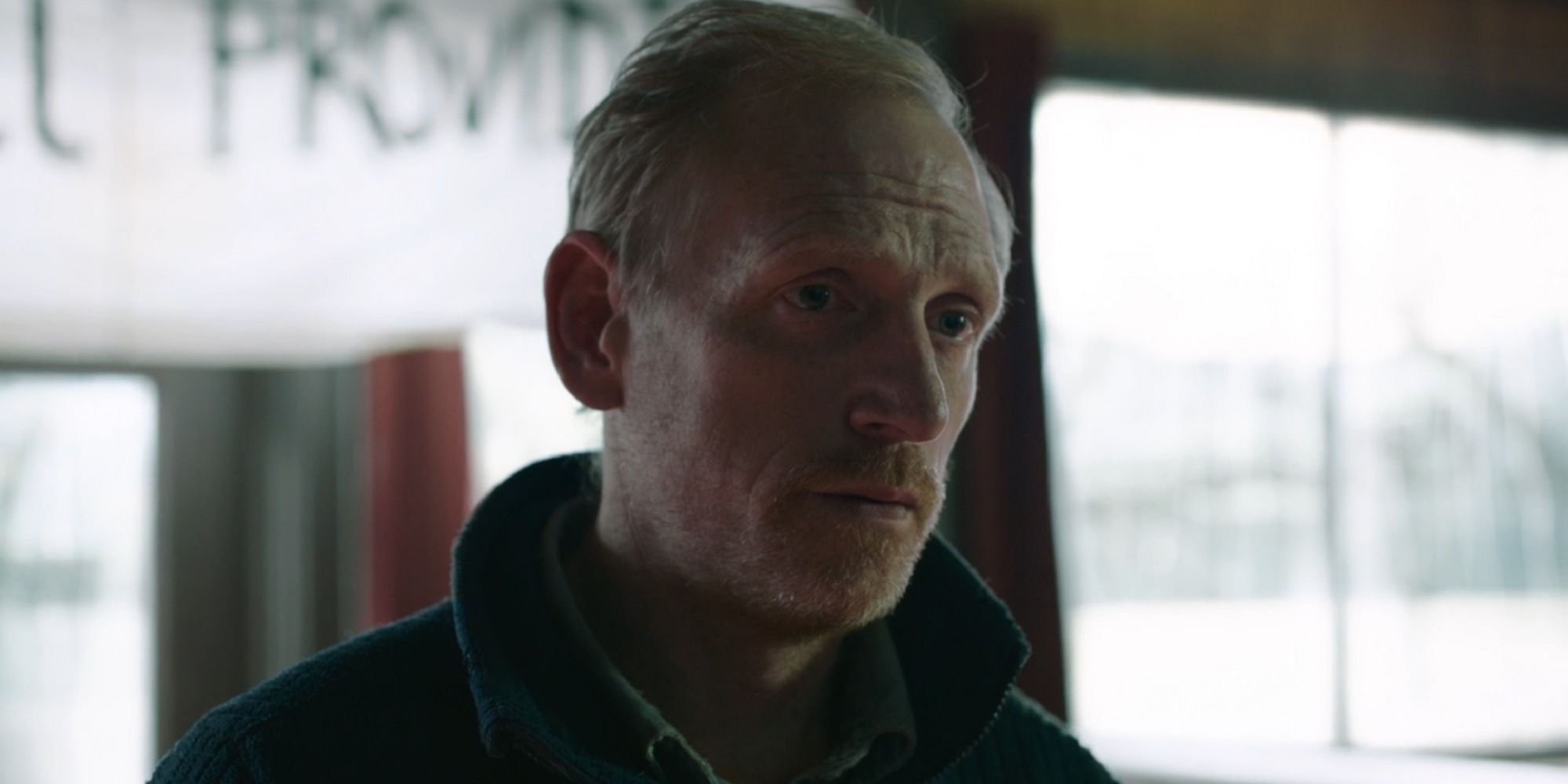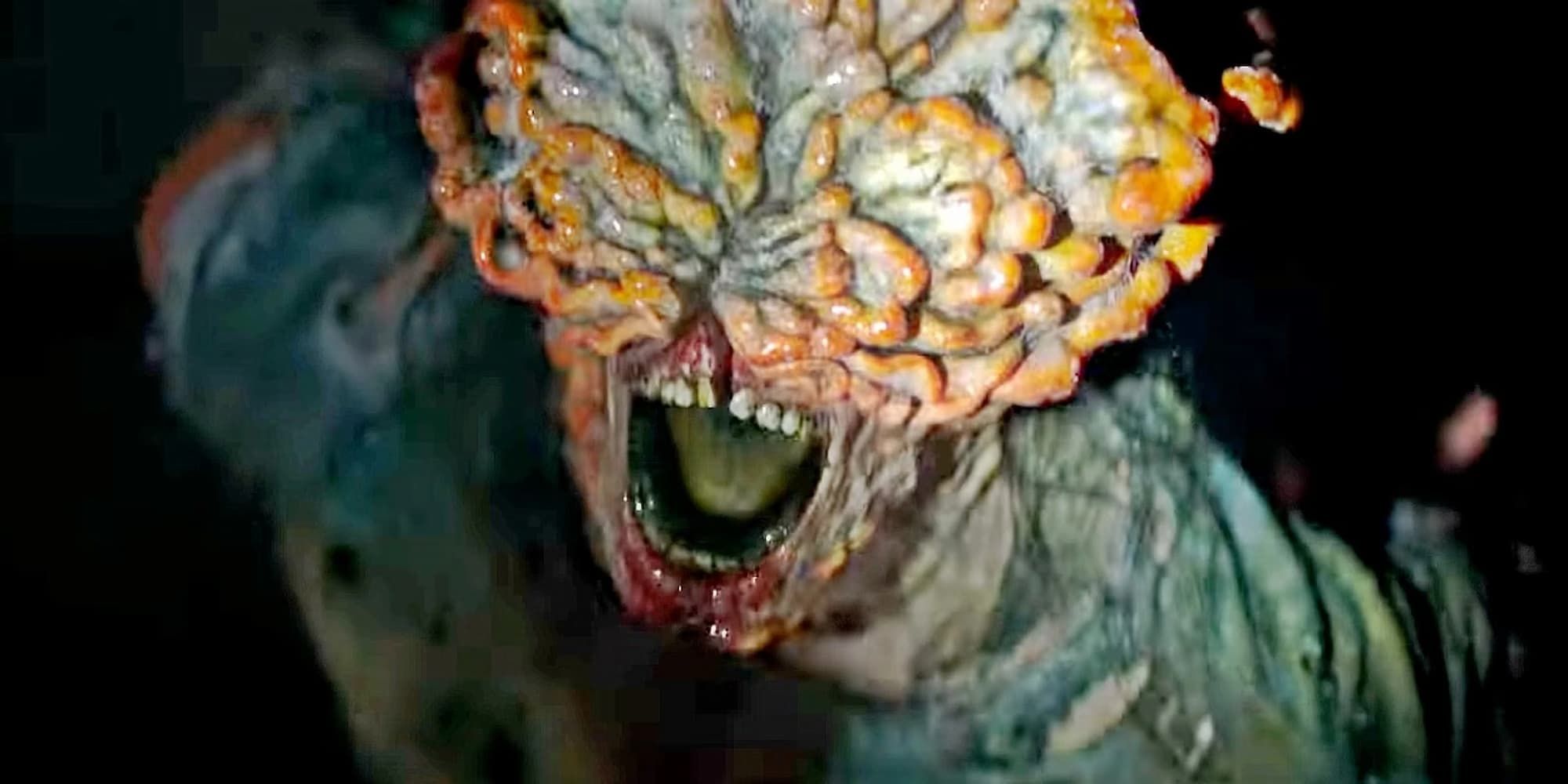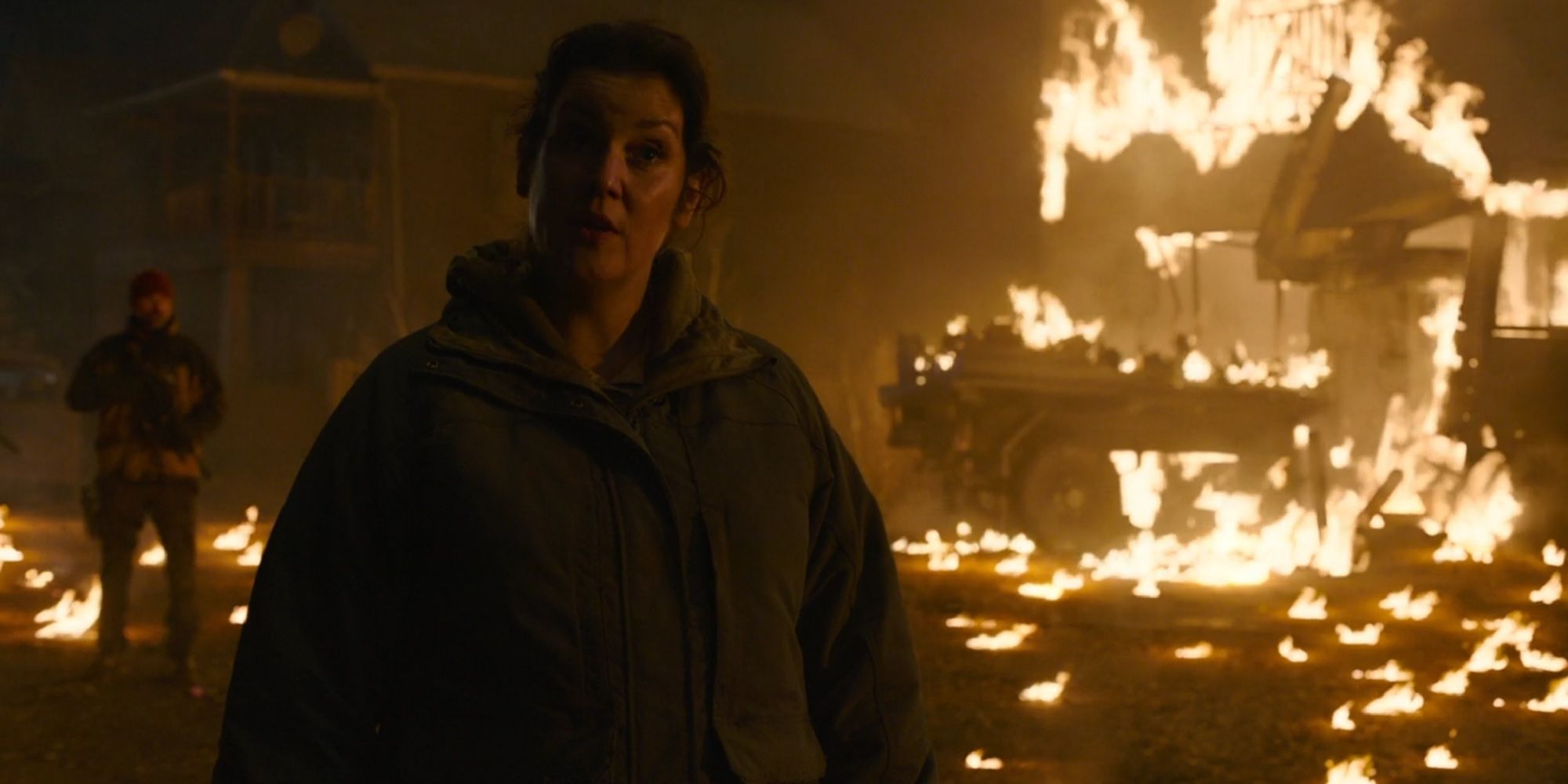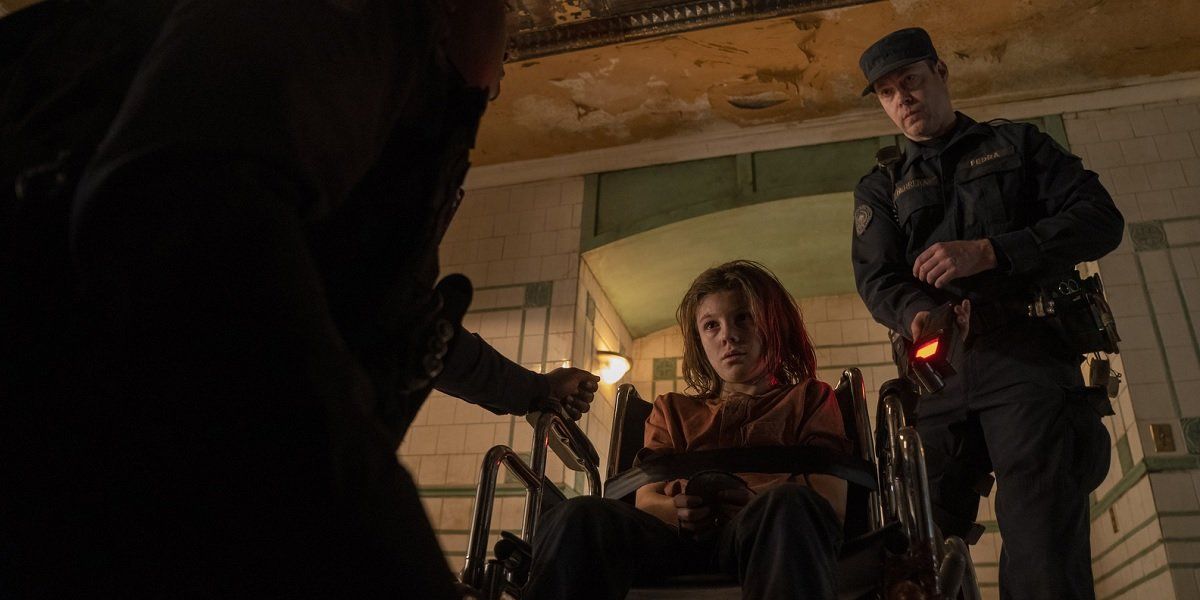Part of the beauty of The Last Of Us is that it doesn't feel like the same thing over and over. It would have been easy to recycle the same tropes; after all, there's only so much you can do in a zombie apocalypse setting before things start to repeat themselves. When you're dealing with an antagonist that's so single-minded, you can't really vary the way they interact with your protagonists. Zombies will do what zombies do: They'll eat, mill about in mindless hordes, and spread their virus until everyone in their path is infected.
In the game version of The Last Of Us, clickers were everywhere. They were the primary enemy because that's what makes for interesting gameplay — without frequent groups of clickers to hide from or gun down, the game wouldn't be much more than a walking simulator. Players would be traipsing through empty buildings and sparse landscapes with nothing to show for it and very little to make it interesting. So instead, clickers run rampant; they're inserted into every mission in droves, and that's the way it should be.
I'm relieved, though, that the TV adaptation took a different approach. Clickers were used primarily as jump scares or to heighten already dangerous situations, as they should be; overusing them would have made them lose their impact. We got a phenomenal trade-off for the lack of zombies — relationships between the characters shone, and the writers had more time to explore the subtext of the game. We saw humanity portrayed as it should be — diverse and fully variable in the way zombies just can't be.
David was the most impactful villain of the entire series. He showcased a side of humanity that, unfortunately, is already prevalent in our world. His monologue to Ellie shows the best possible use of the Cordyceps in the entire TV show, working as a basis for his worldview. As David says, Cordyceps aren't evil, they just spread. They have no agenda whatsoever; nor any real motivation other than survival. But he's wrong that Cordyceps has any concept of love — that particular detail seems to be an idea David has wrenched to fit his sick worldview.
He claims that the Cordyceps showed him the light, but the truth is, he wasn't created by the apocalypse — he was enabled by it. He took advantage of the power vacuum to step into a position of authority over desperate people who had no way to escape him or his abusive actions. He exhibited hallmark traits of abusers: He'd lure people in with faith and togetherness, and trusting in something higher that could speak through him and only him, then use physical violence to keep them in check once they were completely reliant on him.
Kathleen filled Kansas City's power vacuum in a very different way; in fact, she created the vacuum in the first place. She never intended to, though. It's clear that she didn't crave power — she only took the position to finish her brother's work. Kathleen was very much a product of her environment; she was tired of being oppressed by FEDRA and mourning the murder of her brother at her hands. The loss twisted her into someone who needed vengeance at any cost.
We see Kathleen's community turn against the FEDRA officers and the informants reporting to them, committing many of the same atrocities that were once committed against them. We see how thoughtless the killing becomes, hunting down a 13-year-old boy and his older brother who only acted to keep him alive. And we saw what happens when tunnel vision leads to complacency: though Kathleen was warned that the growing mass of Clickers beneath the city was the more pressing matter, she was still determined to find Henry and take her revenge.
Even as Clickers exploded up from beneath the ground and chaos raged around Kathleen, destroying the remainder of her community, she was still laser-focused on taking down Henry. She showed us what happens when someone with good intentions cracks under pressure. She loses sight of their original intention and inadvertently becomes exactly what they were fighting against. Her group became FEDRA in more ways than one; they just didn't have the name.
And what about FEDRA? They're representative of a post-apocalypse classic: The overreaching government that endangers its people in the name of keeping them safe. We saw kindness to infected children before they were killed to prevent the spread of infection; we heard firsthand accounts of the atrocities they committed. We saw how ineffective some quarantine zones were, and how strict others were, but really, we barely got to see what exactly FEDRA was capable of. It was all referential, apart from Ellie's flashback episodes and a few brief encounters.
And, with all this talk of villains, I'd be remiss not to include the final conflict between Marlene and Joel. The last episode of The Last Of Us made one thing very clear: Right and wrong are very rarely black and white. Bad things can be done for the right reasons.
Marlene is more than willing to sacrifice Ellie in the name of the good of the world — all for a vaccine that may not even work. Joel is more than willing to sacrifice a hospital full of people for Ellie. Both act without consulting her in any way; Marlene assumes she knows the decision Ellie would make, and Joel knows full well Ellie wouldn't want the Fireflies massacred for her sake.
Joel acts from a place of pure love. He acts from a fear of loss, too, (how could he let Ellie go after losing Sarah in such a traumatic way?) but love is at the core of it all, and that's what sets him apart from all the other villains of The Last Of Us.
Sure, it's far easier to understand his motivations when we've seen things from his perspective all season, but it's been well established that Joel has done plenty of terrible things just to get by. His actions in the final episode are different, though: He's doing it all so that Ellie can live, whether she'd agree with it or not.
The human antagonists of The Last Of Us are where the show really shines. They're complex and different, filling out the world and making it dangerous in completely unique ways. The fact that they each have distinct motivations and even alignments is part of what makes the show so unique. There are sides to (almost) every story.
Arguments could be made for each of them, David being the notable exception, without excusing their wrongdoings. They aren't just baselessly evil: For the most part, they're just people trying and failing to find their own way through the world, and sometimes, they get in each other's way. That's when the fireworks happen. That's what makes for a good story.




